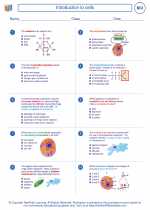Gynecology
Gynecology is the branch of medicine that deals with the health of the female reproductive system, including the uterus, ovaries, and breasts. It encompasses a wide range of issues, including menstrual problems, fertility issues, contraception, and menopause. Gynecologists are medical doctors who specialize in the diagnosis, treatment, and prevention of these conditions.
Anatomy of the Female Reproductive System
The female reproductive system consists of the ovaries, fallopian tubes, uterus, cervix, and vagina. The ovaries produce eggs and female sex hormones, while the fallopian tubes transport the eggs from the ovaries to the uterus. The uterus, or womb, is where a fertilized egg implants and develops into a fetus. The cervix is the lower part of the uterus that opens into the vagina. The vagina is the canal that connects the uterus to the outside of the body.
Common Gynecological Conditions
1. Menstrual disorders: Irregular, heavy, or painful periods can indicate underlying health issues such as hormonal imbalances or uterine fibroids.
2. Pelvic inflammatory disease (PID): An infection of the female reproductive organs often caused by sexually transmitted infections (STIs) such as chlamydia or gonorrhea.
3. Endometriosis: A condition in which the tissue that normally lines the inside of the uterus grows outside the uterus, leading to pelvic pain and infertility.
4. Polycystic ovary syndrome (PCOS): A hormonal disorder causing enlarged ovaries with small cysts on the outer edges, leading to irregular periods and difficulty getting pregnant.
Preventive Care and Screening
Gynecologists provide preventive care services such as Pap smears to screen for cervical cancer, breast exams to detect any abnormalities, and counseling on contraception and sexually transmitted infections. They also provide vaccinations against human papillomavirus (HPV) to prevent cervical cancer.
Study Guide
- What are the primary organs of the female reproductive system?
- Describe the functions of the ovaries, fallopian tubes, uterus, and vagina.
- Explain the differences between menstrual disorders such as dysmenorrhea, menorrhagia, and amenorrhea.
- Discuss the causes and symptoms of common gynecological conditions like endometriosis and PCOS.
- Outline the recommended preventive care measures for women's reproductive health.
Understanding gynecology is essential for women to take charge of their reproductive health and well-being. It is also a critical field of study for aspiring healthcare professionals seeking to specialize in women's health.
.◂Biology Worksheets and Study Guides High School. Introduction to cells

 Worksheet/Answer key
Worksheet/Answer key
 Worksheet/Answer key
Worksheet/Answer key
 Vocabulary/Answer key
Vocabulary/Answer key
 Vocabulary/Answer key
Vocabulary/Answer key
 Vocabulary/Answer key
Vocabulary/Answer key
 Vocabulary/Answer key
Vocabulary/Answer key
